M’sian early-stage startups looking to grow can now apply for MYStartup’s pre-accelerator
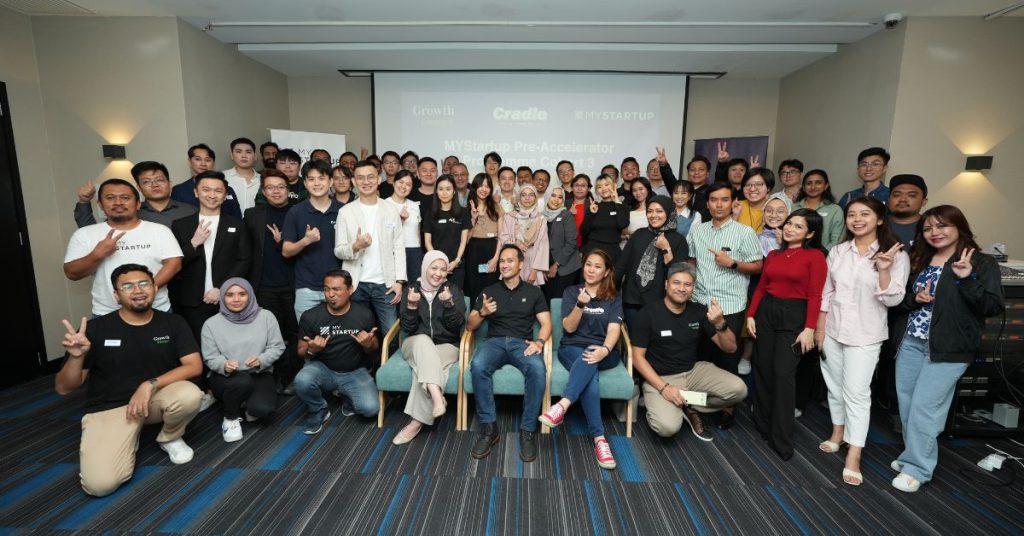
[Written in partnership with MYStartup, but the editorial team had full control over the content.]
MYStartup, in partnership with Watchtower and Friends (WTF), has announced the return of its MYStartup Pre-Accelerator programme, with applications now open for its fourth cohort.
WTF is a Malaysian startup accelerator and venture builder that help startups rapidly build business cases, validate them, and build their ventures.
Applications are open from now until June 23, 2024 for pre-seed and early-stage startups from various sectors with a focus on technology-led solutions.
The pre-accelerator programme will take place from June through September 2024 where the selected startups will undergo a tailored module aimed at fast-tracking development and scaling growth.
Throughout the programme, these startup founders will gain access to a wealth of resources, including world-class mentorship and outcome-based curriculum.
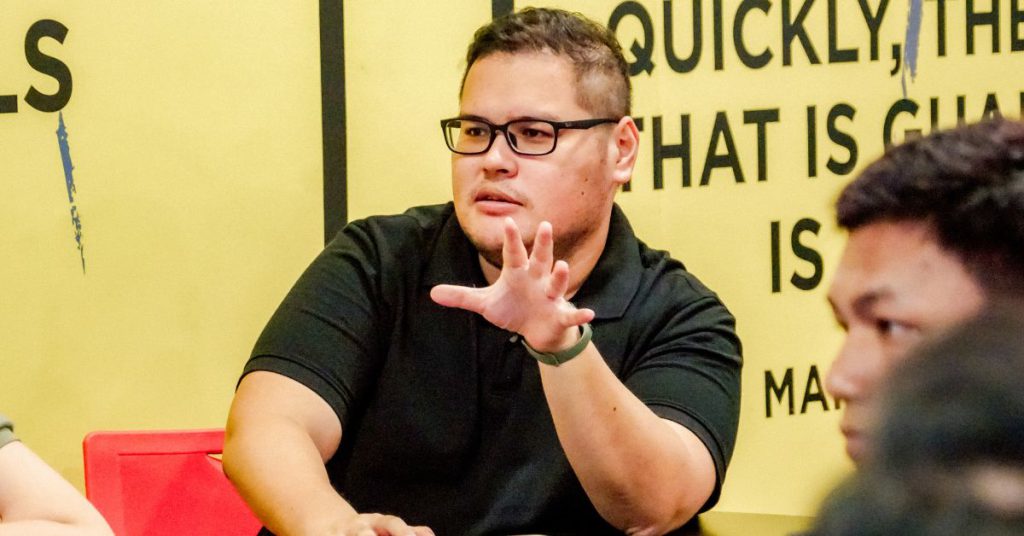
The top five startups from the cohort will also qualify for an intensive fundraising accelerator programme, providing them with all the support they need to succeed beyond the pre-accelerator programme.
Who is it for?
According to the accelerator’s website, it’s welcoming entrepreneurs who embrace cutting-edge ideas across diverse industries, prioritising solutions driven by technology.
To apply, the startup must be registered entities in Malaysia, or plan to register as a Malaysian entity in the next three months.
Applicants must demonstrate a well-defined concept, prototype, or ideally, a minimum viable-product (MVP). They should also present a compelling unique selling proposition (USP) that clearly articulates the value and benefits the venture brings to the market.
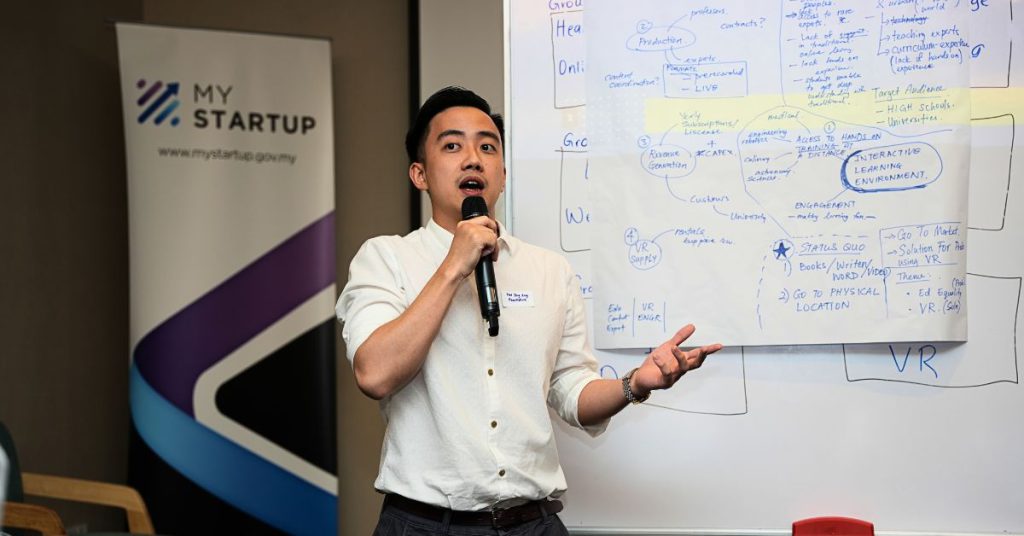
Another criteria is that the team should comprise two founders, with at least one dedicated full-time to the venture. At least one team member must commit to attending the full accelerator programme.
There are no charges or fees for joining the accelerator programme.
What’s on the agenda?
Designed to provide early-stage startups with a comprehensive learning experience over four months, MYStartup Pre-Accelerator Cohort 4 Programme will have three sessions per week, each lasting three hours.
The programme covers the following topics:
| Week 1 | Founders’ Foundations | Aligning co-founder goals, crafting mission and vision statements, and using OKRs. |
| Week 2 | Business Model Canvas | Developing business models, customer profiling, and market analysis. |
| Week 3 | Minimum Viable Product | Designing MVPs, resource specifications, and launch roadmaps. |
| Week 4 | Market Validation | Conducting validation research, gathering user feedback, and iterating MVPs. |
| Week 5 | Early-stage fundamentals | Exploring valuations, funding, legal documents, and pitching techniques. |
| Week 6 | ESG for startups | Understanding Sustainable Development Goals (SDGs), governance, and aligning startups with SDGs. |
Mentoring sessions will primarily be conducted in person, with virtual access available for founders based outside the Klang Valley.
Standing on the shoulders of past successes
The fourth instalment of the MYStartup Pre-Accelerator programme comes on the heels of the achievements seen in the previous cohort, including startups such as Deepsight. The startup secured a grant amounting to RM100,000, and has successfully launched its product on Google Play and the App Store.
Additionally, startups like Rabt, PropMoth, and PyceHub are in the midst of discussion to secure potential investments with an estimated value of RM1.5 million, cumulatively.
If any of that sounds inspiring, be sure to visit the accelerator’s page and apply for the accelerator before its June 23, 2024 deadline.
- Learn more about MYStartup Pre-Accelerator Cohort 4 here.
- Read other articles we’ve written about Malaysian startups here.
Also Read: 5 ways this UK uni in Johor gives students real-world training to prepare for their future careers
Featured Image Credit: MYStartup
She left a law career for fashion, found her niche in custom embroidered wedding veils
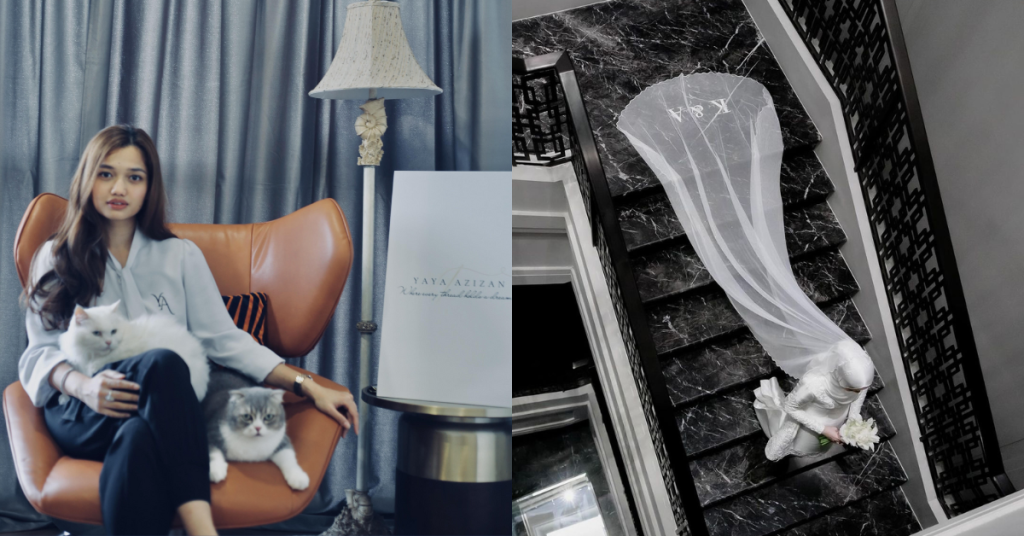
Weddings are a huge industry, and understandably so. It’s usually a once-in-a-lifetime opportunity, and thus many happy couples may want to splurge on creating a beautiful ceremony to remember.
From unique invitations and witty hashtags to beautiful photo booths and door gifts, there’s plenty of avenues for creativity and personality to shine in a wedding.
One seemingly novel way for happy couples to further spruce up their wedding day is through the bride’s veil.
While many will know that picking out a wedding dress is an extremely important decision for a bride, the veil is usually overlooked as an important part of the final look.
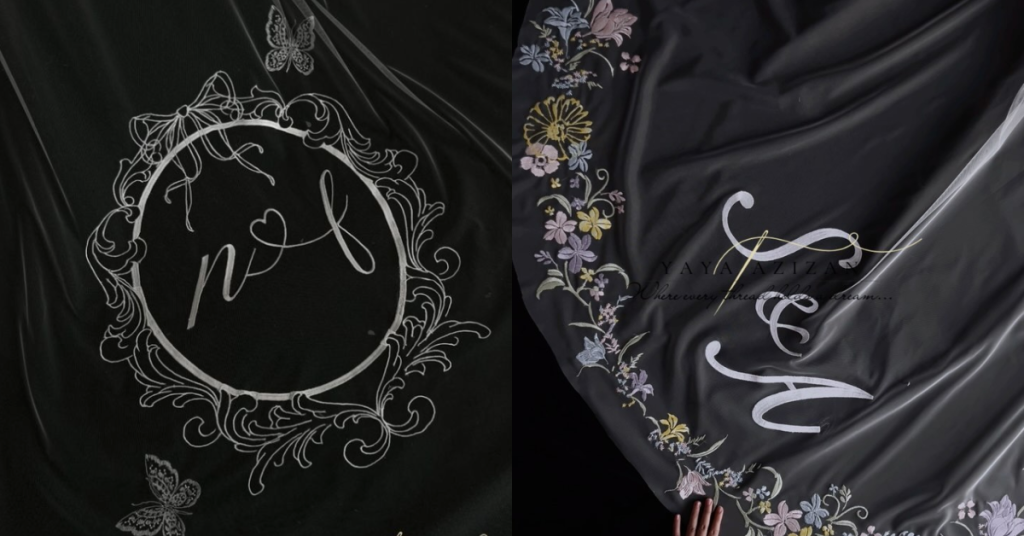
But it’s this overlooked nature that makes it a perfect item for brides to add some flair and customisation, whether that be initials, names, or a quote.
A homegrown brand that’s doing just that is Yaya Azizan.
From law to fashion
31-year-old Yaya comes from a law background, having begun her career in it, gaining valuable experience in legal and corporate settings.
“However, my passion for creativity and entrepreneurship led me to explore new avenues,” she expressed.
Yaya first ventured into the fashion and textile industry, where she ran a couple of businesses.

As she delved deeper into the industry, she noticed that there was a unique niche and growing demand for high-quality embroidery that she could tap into.
Noting that you can basically do embroidery on almost anything, Yaya found her calling in something specific: embroidery for wedding veils.
Unveiling a niche market
“It all started when I noticed a significant interest from brides seeking beautifully crafted veils to complement their special day,” Yaya explained.
From here, she realised there was a gap in the market for a solid platform specialising in wedding veils.
There wasn’t necessarily a predefined plan; it was more about listening to what brides wanted and then channeling her skills and passion into fulfilling those desires.
This customer-driven approach allowed her brand to establish itself as a go-to destination for wedding veils right from the start.
To pick up the necessary know-how, she participated in two short classes to learn the basics of embroidery.
“It involved a lot of blood (quite literally), sweat, tears, and practice to hone my skills,” she shared.
Thankfully, under the original brand name of The Tekat Tekat, Yaya Azizan started receiving orders almost immediately. The learning curve was steep, but it forced Yaya to upskill in a short amount of time so she could deliver high-quality work from the get-go.
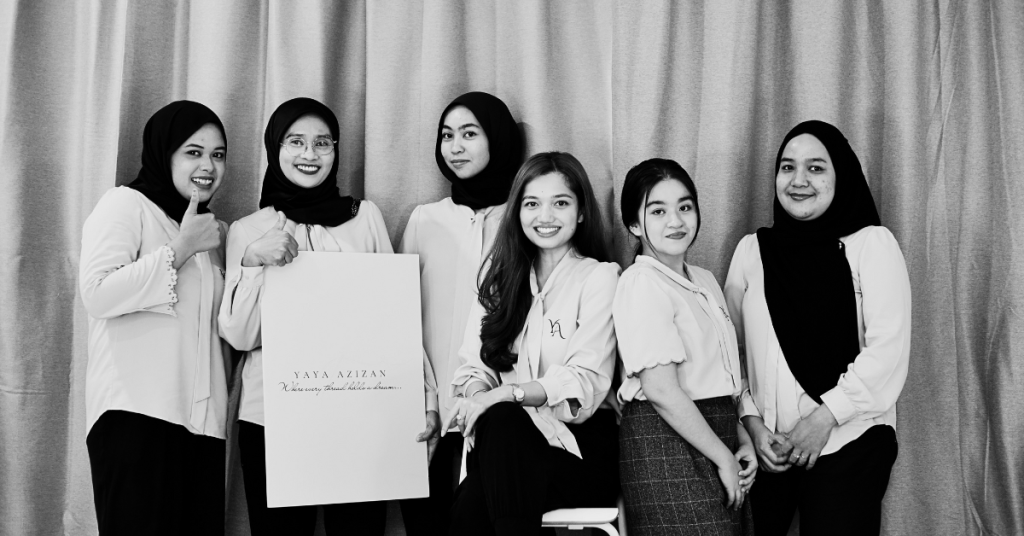
“My mantra has always been and will always be quality. I do not compromise on the quality of our embroidery,” she clarified.
“This unwavering commitment to excellence has been the foundation of my work and progress. The constant practice, combined with a dedication to delivering the best possible product, has helped me reach my current skill level.”
Embroiled in embroidery
The veil embroidery service begins with the design phase, which in turn is all about communicating with the clients to understand their vision and preferences.
Having a clear and comprehensive idea of what the couple is looking for is key. From there, the team creates a draft design and presents it to the client for approval.
After the design is approved, they proceed with production, which involves various queues and timelines, as different designs require different attention spans and techniques.
“We meticulously embroider each veil, paying close attention to detail to ensure that the final product meets our high standards of quality and craftsmanship,” Yaya assured.
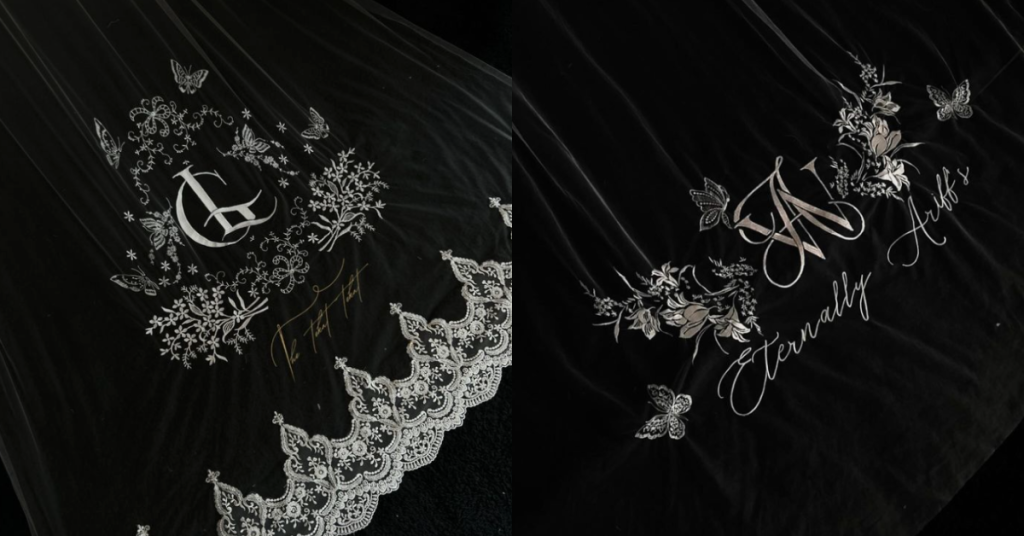
Embroidering on veils requires a great deal of patience and delicacy, the founder said. Veils are typically made with delicate fabrics which demand care and attention to detail to ensure they remain intact throughout the embroidery process.
“In my experience, the key to successful embroidery on veils lies in patience—patience, patience, and more patience,” Yaya said. “There’s a saying that you are what you love, and when you do something out of love, the outcome speaks for itself.”
The majority of their embroidery work is done using machines, allowing them to efficiently produce intricate designs on a variety of fabrics. But certain elements of their designs, such as patch laces and finishing touches, are best executed by hand, Yaya said.
The team then adds finishing touches, which may include trimming excess threads, reinforcing delicate areas, and ensuring that the embroidery is securely attached to the veil fabric.
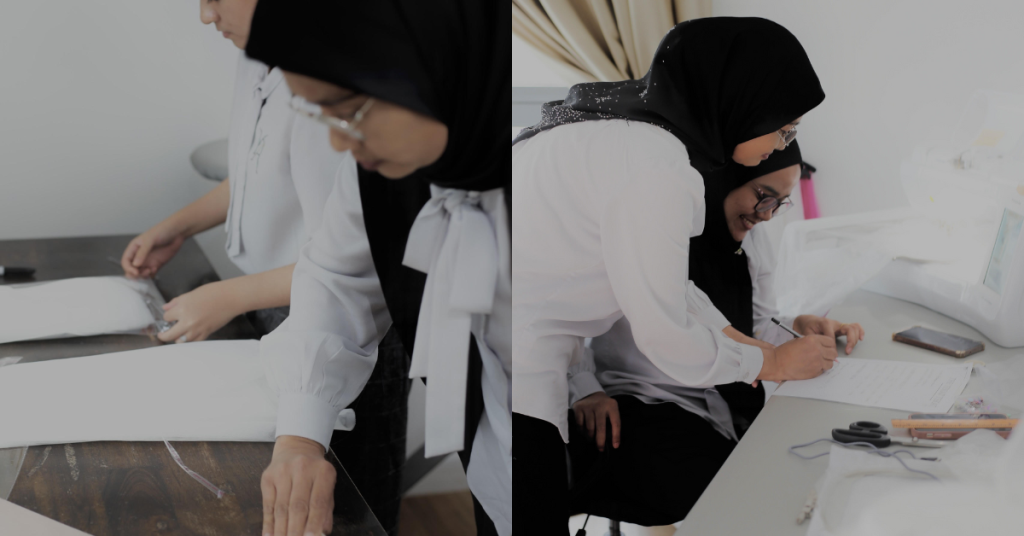
After thorough quality control checks, the finished veil is revealed to the clients.
As for the timeframe for completing an order, it varies depending on the complexity of the design and the team’s workload.
The founder clarified, “Typically, our orders are completed within a reasonable timeframe to ensure that our clients receive their veils in time for their wedding day.”
The team at Yaya Azizan has grown to seven members, with the majority being in the production department.
“While I may have started as the main person in charge of embroidering, our growth has allowed me to step into a more managerial role, focusing on strategy, quality control, and ensuring the smooth operation of our business,” Yaya said.
Threading forward
Yaya Azizan has achieved profitability, Yaya proudly shared.
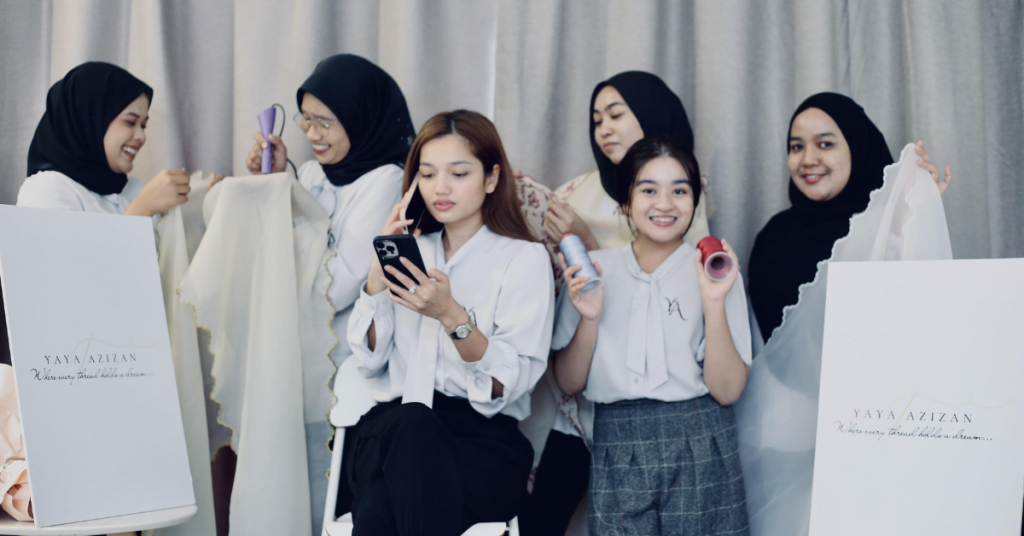
To continue on this path of profitability, the business is focused on expanding the team and upgrading their equipment to meet growing demands.
Additionally, Yaya aims to ramp up their international consultations, with a specific focus on markets like Brunei and Singapore.
“These consultations will allow us to connect with clients abroad and showcase our expertise in bespoke embroidery, further expanding our reach and establishing Yaya Azizan as a trusted name in the global fashion industry,” she explained.
With this, the team hopes to see opportunities for strategic partnerships with international tailoring brands to offer their embroidery services as part of their offerings, establishing the Yaya Azizan brand on the world map.
Also Read: 5 ways this UK uni in Johor gives students real-world training to prepare for their future careers
Featured Image Credit: Yaya Azizan
Backed by Joseph Schooling, this S’porean social app lets people open up about mental health
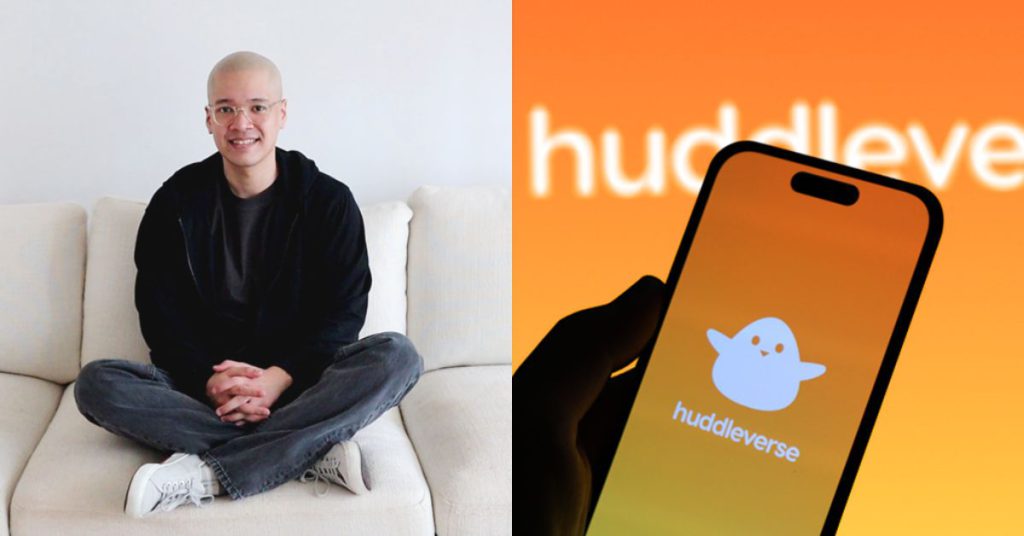
Some founders are entrepreneurial from a young age, while others never set out with the intention of starting a company.
For Viaano Spruyt, it’s the case of the latter.
“To be very honest, all I was trying to do was solve a problem I had personally experienced—a problem deeply personal to me, yet so commonly experienced in the world,” he explained to Vulcan Post.
And his solution would turn out to be something called Huddleverse.
Solving a personal problem
“If I were to trace back to what started it all, it would have been that singular day I sought help for the first time as a teenager,” Viaano recalled.
Throughout his teenage years, he struggled with severe anxiety, worsened by a neurological condition called essential tremor.
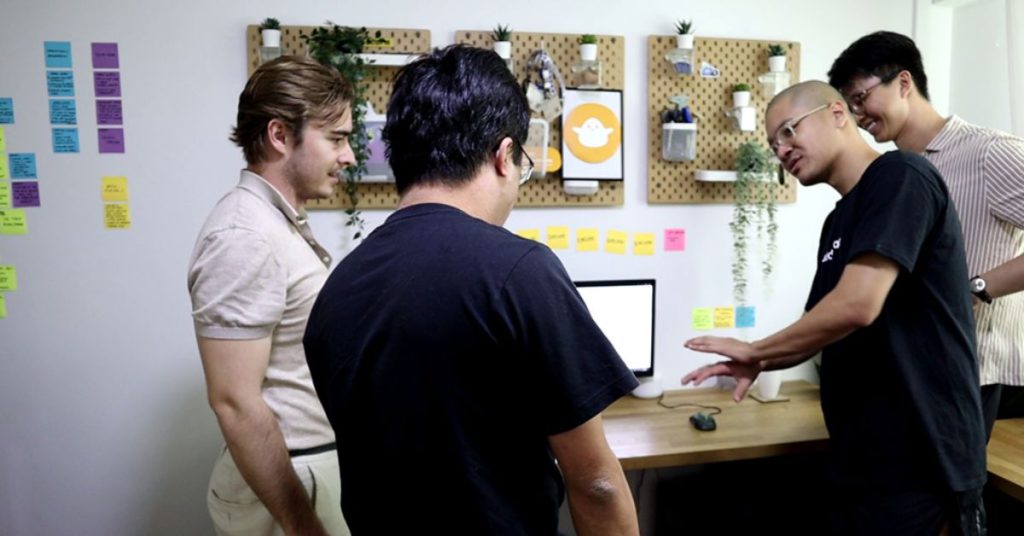
At 18, he sought help from a doctor. However, at the clinic, the doctor only gave him five minutes to speak, invalidated his experience, and did not provide any medication or referrals because his parents weren’t there with him.
“I still remember leaving the clinic feeling really alone and even more isolated than before.”
But that experience was when his life’s passion took form. Not long after, he started working on Huddleverse to ensure that no one else in the world who has no one to turn to with their mental health challenges would feel the same helplessness he did.
So, what actually is Huddleverse?
Huddleverse is a social app designed to improve the mental wellbeing of people.
Through the app, users can connect with one another authentically and create supportive networks in their lives. Here, they are empowered to be their true selves and share their struggles without feeling ashamed.

Specifically, users can share text messages, journals, images, and videos in posts, participate in lengthy discussions through threads, and like or thank other users’ content.
Huddleverse released its native iOS app in May 2023, and plans to release a native Android version soon.
Viaano proudly shared that almost 50,000 people have signed up for their Android waiting list.
“Considering that Android accounts for nearly 81% of the global smartphone market, we anticipate a huge spike in users once we launch the Android version of Huddleverse later this year,” he added.

Currently, the iOS app has around 39,000 Monthly Active Users (MAUs), and this number is consistently growing each month.
Viaano revealed that over half of the users are actually based in North America, closely followed by Asia, with a significant user base in Singapore. The rest are spread out across Europe, Oceania, and other English-speaking countries.
Monetising the business
As of now, Huddleverse is still exploring various avenues for monetisation, wanting to find ones that align with their mission and values. This may involve premium features or subscriptions.
Viaano shared that Huddleverse has been internally funded since its inception, having never taken any loans or incurred any debt.

While most details about the company’s shareholders are kept under wraps, one notable investor is Joseph Schooling, Singapore’s first and only Olympic gold medalist. He reportedly joined Huddleverse’s pre-seed round held last year.
On the topic of funding, the founder said they’ve never actively sought external investment, but remain open to strategic partnerships.
Catering to a curated community
Basically, Huddleverse is a social media platform like Instagram, except with a mental health focus. So, why is there a need for a platform like Huddleverse, when other social media sites may also be able to facilitate such engagements?
Viaano believes that there’s a gap in the market for such an app because mental health experiences are still difficult to share due to stigma, shame, lack of accessibility to mental health professionals.
The founder also believes that existing social platforms are not built by nature or with the initial intention to support mental health needs.
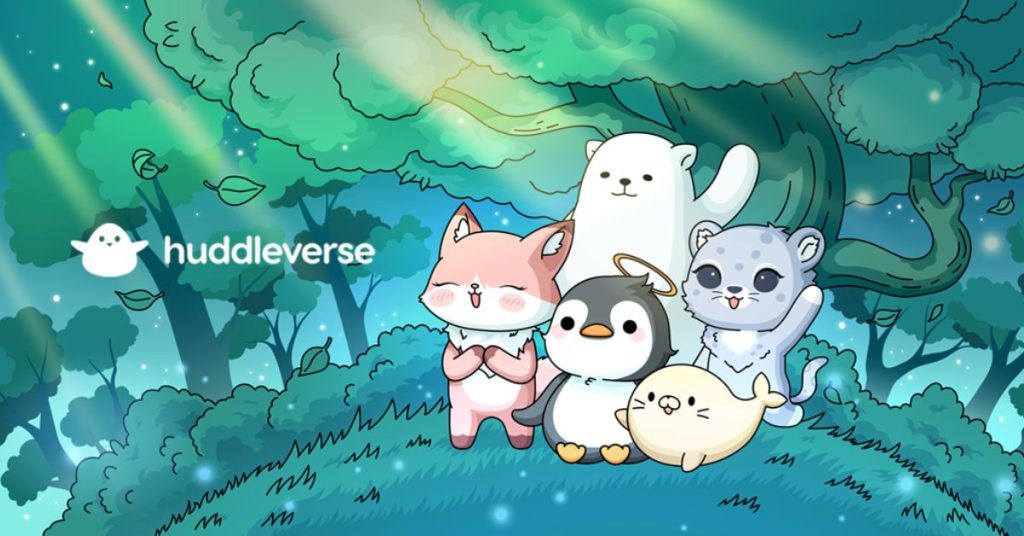
He pointed out that the Huddleverse team includes mental health professionals as advisors, including qualified psychiatrists, psychologists, and counsellors.
To ensure safety and security, the app contains algorithms that proactively identify potentially harmful content. There are built-in reporting mechanisms that allow users to flag inappropriate or harmful content too.
There’s also something called trigger points within the system that flag content requiring manual review by Huddleverse’s moderation team.
But in any case, “alternative” social media apps seem to have a short lifespan in the limelight (think Clubhouse, Bondee, or BeReal). Can Huddleverse really stand out against the well-established social media powerhouses while standing against the test of time?
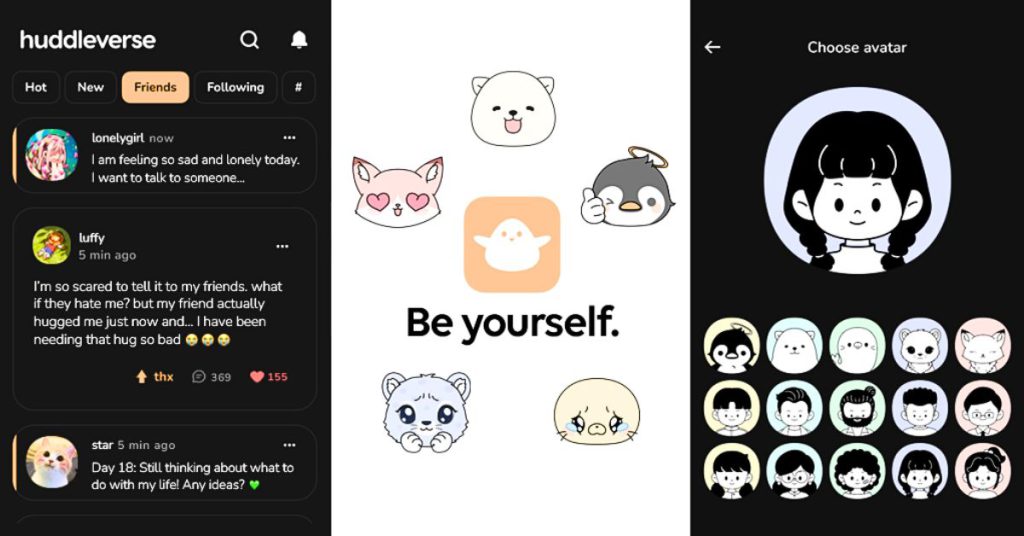
To that, Viaano affirmed that Huddleverse was never intended to be a flash in the pan. “Addressing mental health is not a short-term endeavour; it’s a continuous journey. There is no quick fix or one-size-fits-all solution when it comes to mental health challenges.”
He elaborated, “The key lesson, akin to the classic Tortoise and Hare fable, is that consistency, perseverance, and determination often outweigh speed or initial popularity.”
While trends may come and go, Huddleverse believes that by maintaining a steady, user-focused approach, their platform can become a sustainable cornerstone in the mental health support landscape.
Plus, he pointed out that newer apps like Telegram have gained huge traction against dominant players like WhatsApp.
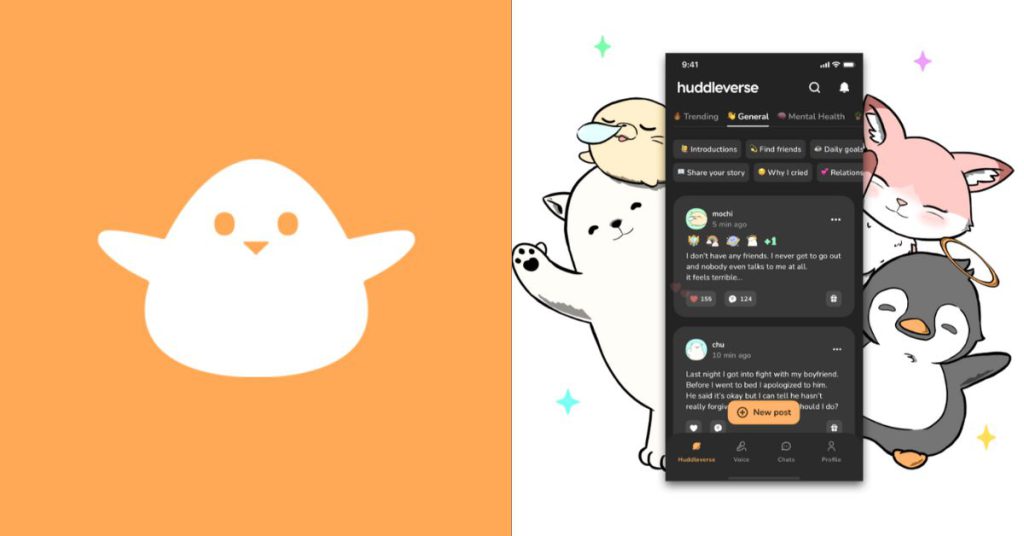
“Similarly, the internet is brimming with forums and topical sites, but why has Reddit emerged as a powerhouse, attracting millions of users worldwide? The answer lies in its diverse and vibrant community, coupled with innovative features that foster engagement and discussion,” he concluded.
That’s why Huddleverse aims to offer something distinct from conventional social media sites. Instead of replicating what already exists, they want to create a platform tailored to the unique needs of their well-defined user group.
“I am not here to create the next Facebook,” Viaano stated. “I am here to create Huddleverse.”
Also Read: 5 ways this UK uni in Johor gives students real-world training to prepare for their future careers
Featured Image Credit: Huddleverse
Chef Jordan Alexis Yap on being young chefs with egos & how they’ve matured with the menu
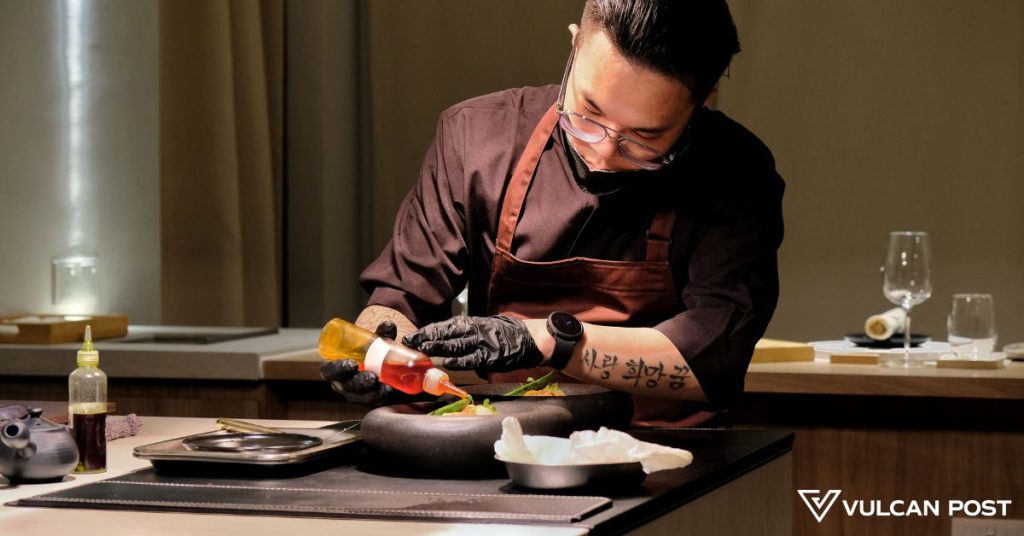
A diner isn’t often privy to what’s going on behind the scenes of a restaurant.
But sometimes, the food can speak volumes, moulded by the ethos of its chefs.
From the very first time we tasted ZEN by MEL’s offerings to our most recent culinary journey with the launch of “Volume: Jordan”, we could definitely tell things have changed.
Our first-ever impression of ZEN by MEL’s debut menu was that, while beautiful, some dishes tried too hard to impress.
Don’t get us wrong. It was clear how the chefs had put their all into every single detail. Yet, the harmony of flavours had become unbalanced. As a result, the execution of some of the dishes left our palates confused.
And based on a candid chat we had with Chef Jordan Alexis Yap, executive chef at ZEN by MEL, that might have been the chef’s ego cooking.
“When we started our first menu, it was more towards how we want to make it as high end as possible, with our egos and all.”
The main point that chefs are missing most of the time is that the ego gets the better of us, whereby you want customers to eat it this way, that way.
But now his philosophy is different.
“I feel at my current stage, after being through all this, it’s like: What for [do] all this when at the end I’m serving what customers want, what customers feel is comfortable?”
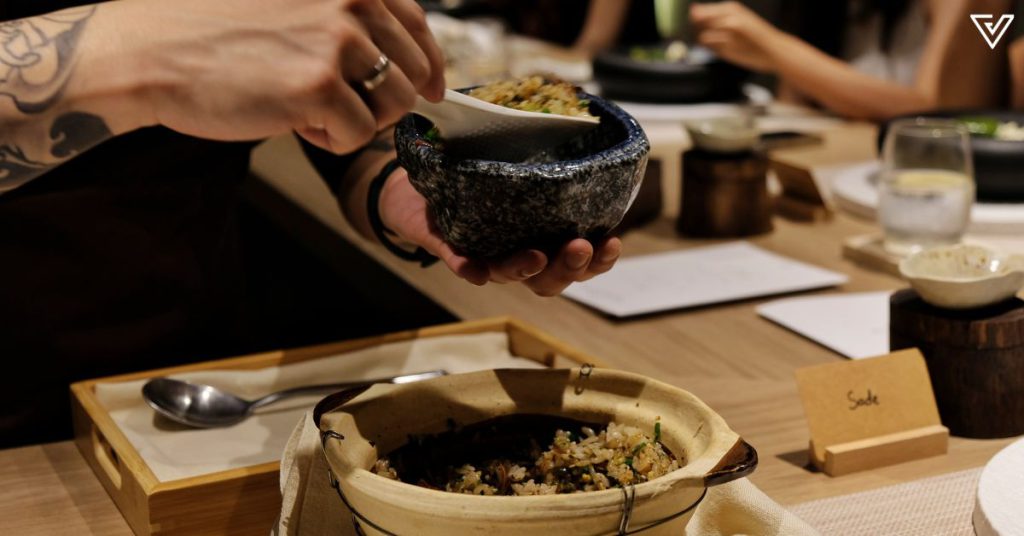
“We had to tone it down and go back to what customers love, instead of what our egos want.”
As we saw for ourselves, Chef Jordan isn’t all bark, no bite. His food reflected the shift in his ethos, if our enjoyment of ZEN by MEL’s latest “Volume: Jordan” menu was of anything to go by.
While the aesthetics remained on point, each dish was harmonious and humble despite their slight flair.
“It’s very cliche that chefs use their childhood memories of food, but the reason why I use this is because this food has gotten me through [many things],” Chef Jordan explained.
One of the dishes on the menu—halibut paired with puttanesca, Kalamata olives, yuzu, young papaya (somtam), and elderflower—exemplifies this.
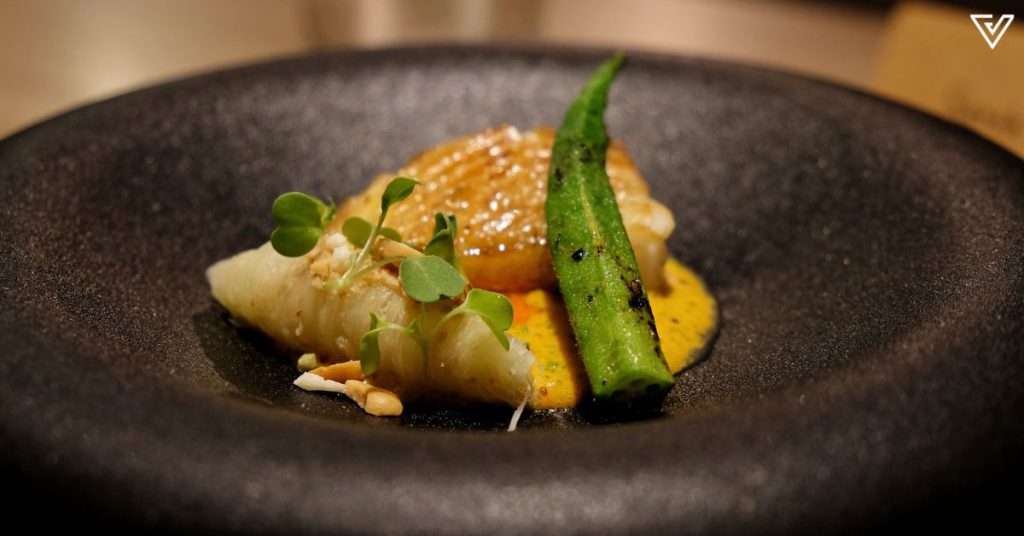
It’s a dish “six years in the making”, he described as he served it, inspired by what his mother used to make for him to lift his spirits.
So, yes, while it might be cliche, there’s beauty in going back to one’s roots, however, reimagined in a more refined and elevated manner.
“I’ve cooked staff meals with [this kind of food], I’ve actually eaten it myself when I was in very bad situations. These are the foods that got me through all those periods and helped me stick to this line of work.”
In fact, at one point, he had exited the company, but then returned not just as a chef, but also as a shareholder.
It’s a testament to his grit and determination to keep putting his best foot forward, and shows that he really believes in the brand itself.
And boy, does he have big plans for their future.
It starts with the name of the brand, zen
To Chef Jordan, zen symbolises the act of being at peace with oneself, and he is shaping ZEN by MEL’s environment to encourage that.
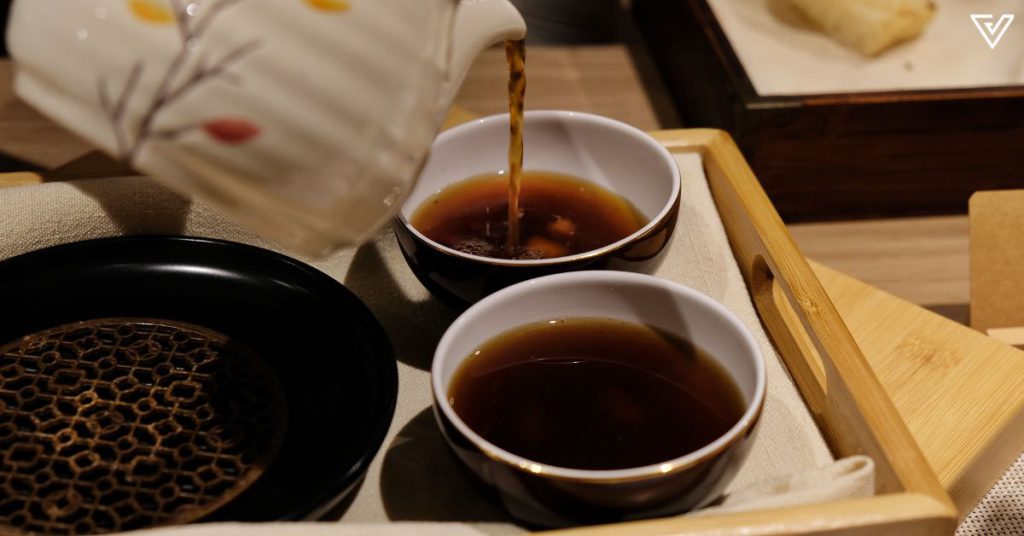
He believes that customers should be able to chat and laugh to their heart’s content as they dine on good comfort food that’s created with them in mind.
If you’re thinking that this is no longer very fine dining in nature, you’re right.
ZEN by MEL is undergoing a metamorphosis under Chef Jordan’s leadership, and seeks to introduce a more izakaya-like atmosphere.
We’re glad to have been able to witness the young brand and team of chefs mature over time, under the guidance of Mel Group’s co-founders Damien and Mel, and we look forward to what they will dish out in the future.
As Chef Jordan concluded, “We might not start off very nice or very good because we are all learning, as well as being young [chefs].”
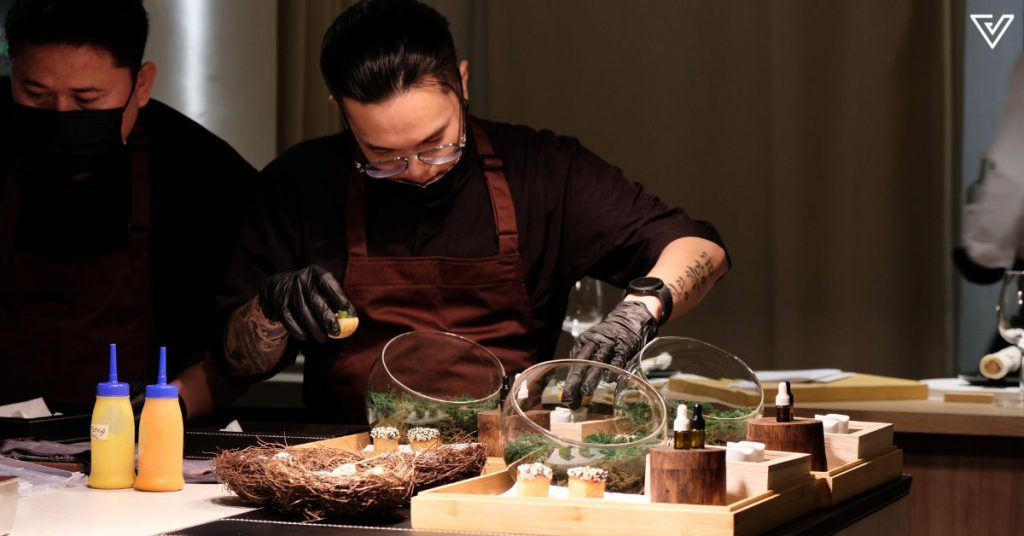
“We’ve grown up and we’ve matured, since it’s been almost three years since the first season. I would say we’re happy professionals now.”
Also Read: 5 ways this UK uni in Johor gives students real-world training to prepare for their future careers

